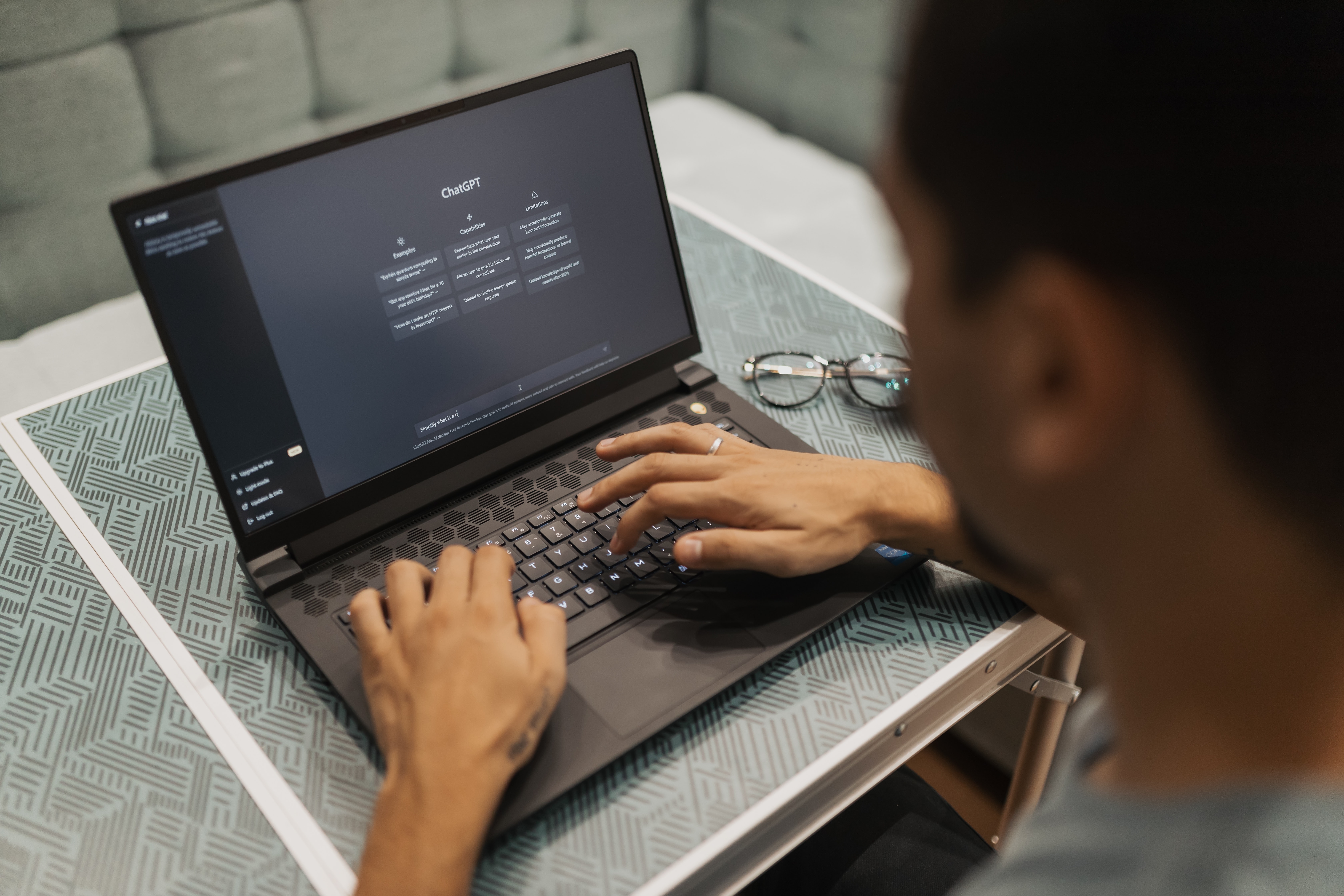The World of Work by Harry Sherrard
The Future of Work – AI & HR

Over the last 6 months Artificial Intelligence (AI) has become increasingly accessible to everyone. By its very nature it can enhance and even automate processes. AI platforms, launched by big players such as Open AI’s ChatGPT, Microsoft’s Bing AI and Google’s Bard can prove to be useful collaborators, analysing requests and processing huge amounts of data to produce a requested output for the user.
What are the benefits of AI and ChatGPT for HR?
At the most basic level, a chatbot is a computer program that simulates and processes human conversation (written or spoken), allowing humans to interact with digital devices as if they were communicating with a real person and the process is simpler than it initially sounds. A user can simply type an instruction into a chatbot and receive an almost instantaneous output. As a result, time consuming activities such as creating document summaries, initial HR Policy drafts and job descriptions can easily be obtained within set parameters from the user’s chosen AI platform.
Recruitment is an excellent example of where AI, even in its relative infancy, can prove to be a useful tool. An AI platform can create a detailed job description (based on specific requirements) in seconds. It can even suggest a set of interview questions to be used during an interview to help with the selection of the best candidate for a role. At the job offer stage, employment contracts can quickly be analysed via an AI platform and the results can indicate points which may require further consideration – for example, a missing clause.
Streamlining processes such as the above can give HR professionals increased capacity to focus on the employees themselves. Capacity to review and enhance aspects of company culture and processes lend themselves to be primarily people led – performance management and absence management for instance. Both areas can reap huge benefits for an organisation and employees if managed well but they are time consuming.
What are the current challenges of AI?
One of the biggest concerns is that of accuracy. As an example, ChatGPT has a knowledge cut off date and currently only accesses data which was available on the internet up until September 2021, meaning that it lacks information on more recent events. Also, at this stage AI cannot tell the difference between reliable and unreliable data. It cannot interpret the data to judge accuracy.
The platforms ‘learn’ and evolve from huge amounts of data, including the data a user feeds into it. For those in HR, this naturally throws up confidentiality and data protection concerns regarding employee and employer information and data security. For example, if a user were to input confidential information into a document, this content could appear in another user’s response. Users therefore need to practice due diligence and ensure everything they input into an AI platform is anonymised.
As individuals, we are increasingly aware that we all have unconscious biases and the impact these can have on human led processes such as recruitment. AI is based on pre-set algorithms which will also have in-built biases. So, whilst HR professionals could enlist AI in the process of candidate selection for interview, there is an inherent risk of discrimination that the technology would not recognise or mitigate against.
As with a lot of things, it’s all about managing risk. Ultimately the liability for error, be that of human or AI, lies with the employer. We are not quite ready yet to fully delegate tasks and processes to AI but it clearly has a firm place within the future of work and HR. It is already proving to be a great resource but one which should not be followed blindly but instead complemented with human verification and specialist advice.
If you would like further information on any of the topics detailed in this blog please email advice@sherrardslaw.com or call the office on 01273 834120 to talk to a member of our team.
We will also be covering the topic at our Employment Law Latest seminars later this year (from 16th to 30th November 2023). For further information or to book a place please send an email to sarah@sherrardslaw.com.
Back to Blogs Page
